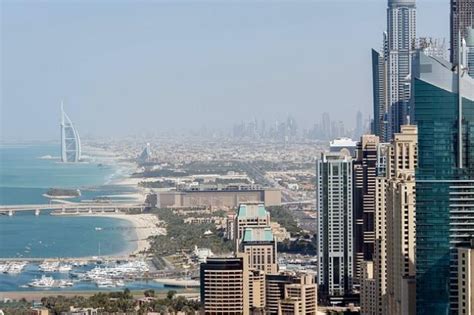
GCC Unified Tourist Visa: One Application, Six Countries, Endless Opportunities
A New Era in Gulf Mobility
The Gulf Cooperation Council (GCC) is preparing to launch a revolutionary new system—the GCC unified visa—that will allow travelers to explore six member states with a single visa. Announced in mid-2025, this visa will cover the United Arab Emirates, Saudi Arabia, Qatar, Kuwait, Bahrain, and Oman. It is expected to come into effect before the end of the year and is modeled after the Schengen visa system in Europe.
This game-changing initiative aims to increase regional tourism, enhance business travel, and promote economic integration among GCC member countries.
What is the GCC Unified Visa?
The GCC unified visa is a joint effort to simplify entry procedures and stimulate regional tourism. Instead of applying for individual visas for each country, travelers will now be able to submit one application and access six nations.
Key features of the GCC unified visa:
- Validity: 30 to 90 days
- Purpose: Tourism and family visits
- Application Process: Digital submission through a centralized platform
- Required Documents: Passport, travel insurance, confirmed accommodations, round-trip flight, and proof of funds
This visa is designed to serve both tourists and those exploring short-term business or leisure travel, supporting a growing regional trend of bleisure—combining business and leisure in a single trip.
Strategic Goals: Tourism and Beyond
The Gulf region is aiming to diversify its economy beyond oil, and tourism is at the forefront of this shift. Countries like the UAE and Saudi Arabia have invested heavily in world-class infrastructure, cultural projects, and mega-events. The GCC unified visa will encourage travelers to explore not just Dubai or Riyadh, but also emerging destinations like Muscat, Manama, and Doha.
Yusuf Boz, founder of NotteGlobal, comments:
“This visa is not only a win for tourism, but a gateway to investment and cross-border collaboration in the region. We see it as a foundation for deeper economic partnerships.”
Economic Integration and Investment Opportunities
While the GCC unified visa is primarily marketed for tourism, its long-term impact on business and investment cannot be ignored. Easier access to multiple Gulf countries will simplify market research, networking, and regional business expansion.
Many international investors view the GCC as a strategic hub for trade between Asia, Europe, and Africa. With smoother travel between nations, setting up multinational operations will become more feasible.
NotteGlobal is currently developing multi-country investment packages, especially for clients interested in real estate, health tech, and fintech sectors. These packages will be tailored to leverage the new unified travel rules for maximizing returns and mobility.
Implications for Digital Nomads and Freelancers
The unified visa could also appeal to digital nomads and freelancers looking to work remotely from luxury hubs like Dubai or emerging tech centers in Riyadh. Currently, each country has different entry rules, but this new system could pave the way for future work-friendly visa programs across the Gulf.
Yusuf Boz adds:
“If leveraged correctly, this visa can place the GCC on the map as a global hub for mobility—comparable to Europe and Southeast Asia.”
Travelers from Turkey and Europe
For Turkish travelers, the GCC unified visa offers significant advantages. Instead of coordinating different embassy visits and applications, a single platform will grant access to six dynamic countries. With Turkish Airlines already connecting Istanbul to nearly all GCC capitals, the potential for regional tourism loops is enormous.
Moreover, Turkish entrepreneurs, who already have deep trade links with the Gulf, will benefit from fewer bureaucratic hurdles when traveling for business.
Comparison to Schengen Visa
While the GCC unified visa is inspired by the Schengen Area, there are key differences:
- The GCC visa is initially focused on tourism and short visits
- Unlike Schengen, it does not yet allow long-term residence or work rights
- However, regional policymakers have hinted at future phases that may include work permits, student visas, and even long-term digital nomad routes
Not Just a Visa, But a Vision
The GCC unified visa marks a major milestone in Middle Eastern cooperation. It demonstrates the political and economic unity needed to promote sustainable tourism and shared prosperity.
As the founder of NotteGlobal, Yusuf Boz emphasizes:
“We encourage our clients—both investors and travelers—to see this as more than just a tourist tool. It’s a strategic move that opens the door to a regional lifestyle and long-term gains.”
For those considering investment-linked residency like Golden Visa programs, this initiative could act as a stepping stone—allowing them to explore the region first, then commit strategically.





